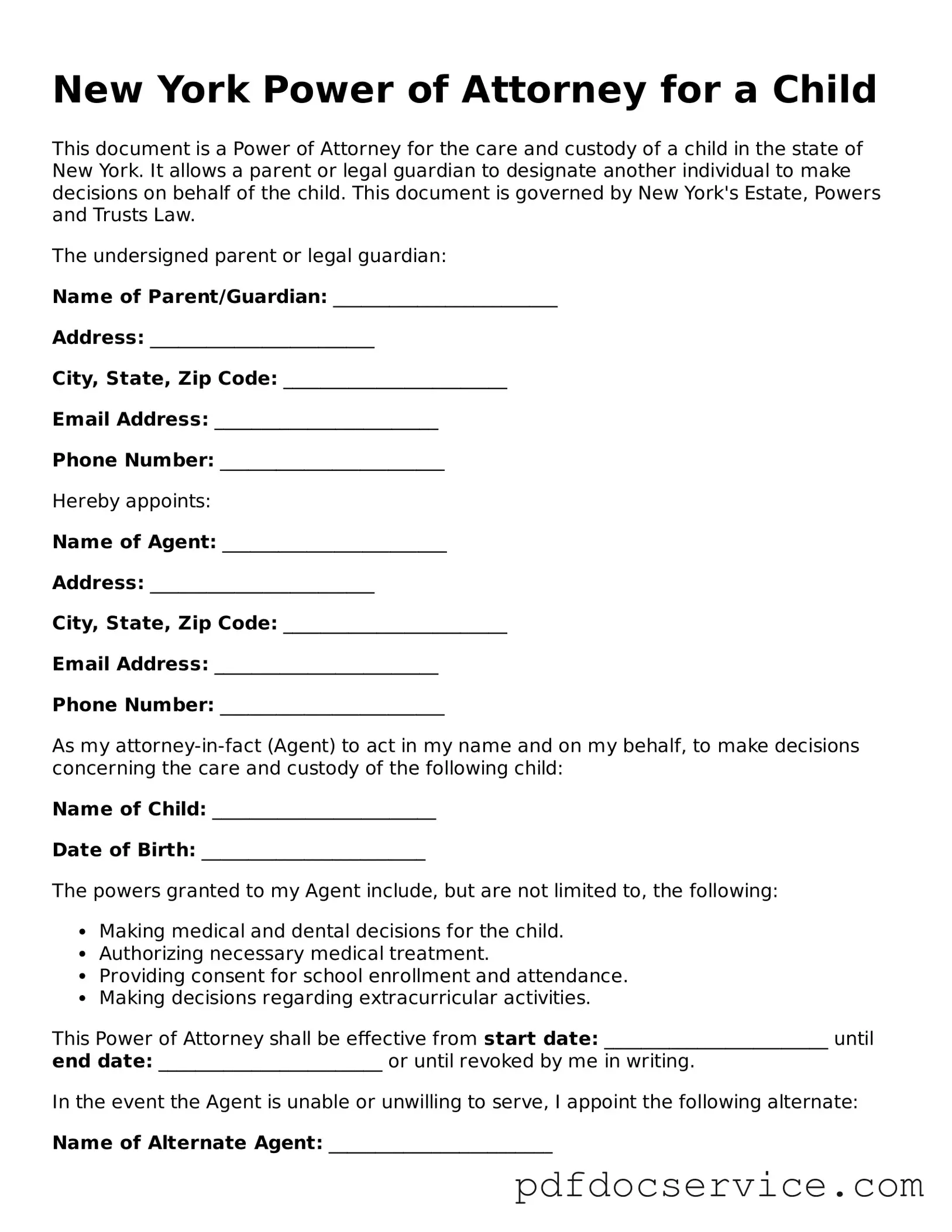Printable Power of Attorney for a Child Template for New York
The New York Power of Attorney for a Child form allows a parent or guardian to grant another adult the authority to make decisions on behalf of their child. This legal document is essential for situations where the parent or guardian cannot be present, ensuring that the child's needs are met. Understanding how this form works can help families navigate important decisions with confidence.
Open Power of Attorney for a Child Editor

Printable Power of Attorney for a Child Template for New York
Open Power of Attorney for a Child Editor

Open Power of Attorney for a Child Editor
or
Get Power of Attorney for a Child PDF
Finish the form now and be done
Finish Power of Attorney for a Child online using simple edit, save, and download steps.